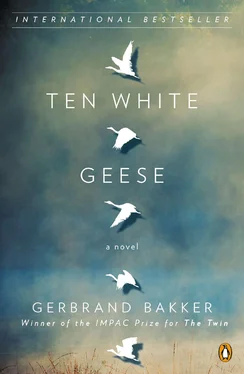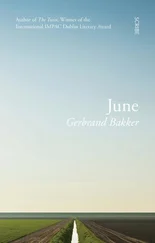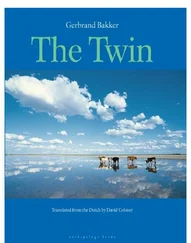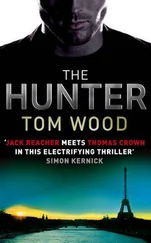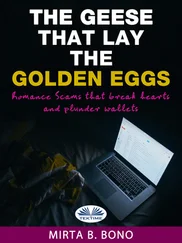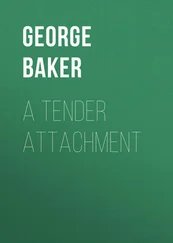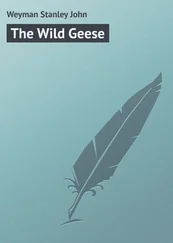‘To make sure you can still graze your sheep here?’
‘Amongst other things.’ He slurped what was left of the coffee out of his mug. ‘Meanwhile they’re looking for family. It could take a while.’
‘Another?’ she asked.
‘Lovely.’ He relaxed a little on his chair and stretched his legs out under the table. ‘I arranged her funeral.’
‘Are the geese yours too?’
‘No. They belonged to Mrs Evans.’
‘So now they’re mine?’
‘Yes. More or less.’
She had to stand up to get his mug and walk over to the sink with it. He stared at her as if he knew how difficult her situation was. ‘More or less,’ she said. ‘What does that mean?’
‘They’re rental geese. They don’t belong to you. I’d be guessing you’re not allowed to put a rented goose in the oven for Christmas roast.’
She stood up, staring back at him so that he wouldn’t be tempted to lower his gaze. It worked, he didn’t glance down at her hips until he had handed her his mug. She put the milk pan back on the hotplate and stared outside again, where the grass now looked a little drier. She wished she was out there: digging with the spade, stringing the cord along the path, working on a metaphorical wall unit. She noticed that the three flowering plants on the windowsill needed watering. She was appallingly tired and got a numb feeling in her arm while whisking the milk. But a numb arm was nowhere near as bad as talking to a man who had apparently come to assert his authority over the land and this house.
‘I only counted six by the way.’
‘What?’
‘Six geese.’
‘Have you been counting my geese?’
‘Of course.’
Goddomme , she thought.
‘Mrs Evans looked after them well. She fed them bread.’
She refilled the mug with coffee and milk and calculated how long it would take him to drink it. She no longer cared what he thought of her and, after passing him the mug, even bunched the T-shirt up a little to sit down. He started drinking straight away, sliding the key back and forth across the hard cover of the map with his free hand. She pushed away the cake and didn’t say another word.
‘It’s a temporary situation. The house is occupied. You’re happy, I’m happy, the agent’s happy. But the situation can change at any time.’ He bent forwards and pulled her plate over. ‘May I?’
She didn’t answer, but he ate her slice of cake all the same. It disgusted her, the broken thumbnail hovering round his chewing mouth. Silently she watched him gulp down the coffee. Then she stood up. She didn’t know what to say. Maybe he’d work out for himself that he’d spent long enough sitting in her kitchen. She gestured at the living room and the front door.
‘Aye, I’m on my way again,’ he said. He rose and walked slowly to the living room. ‘Easy,’ he said. ‘Having all the furniture, like.’
‘Why isn’t there a bed?’
‘I took it.’
‘And the clock?’
‘Climbing up on a stepladder was completely beyond her. I used to change the battery every now and then.’
She was pleased to see him crossing the room in his socks. A man in socks, and especially a man in socks with holes in them, is hard to take seriously.
At the front door he turned and looked her over from head to toe. ‘Injured?’ he asked.
‘Bitten by a badger.’
‘Impossible.’
‘I still got bitten.’
‘Badgers are shy animals.’ Shy . He stepped over the threshold. ‘I’ll be back then,’ he said, before pulling the door shut behind him.
He doesn’t want me to see him bending to pull on his boots, she thought, and smiled. ‘Goodbye,’ she called through the door when she saw that he was reaching down. She dragged herself upstairs and lay on the divan in the study, closing her eyes. Rhys Jones tore off in his car, which was undoubtedly green. A pickup, probably, with room for a few sheep in the back. Or bales of hay. A double bed. She didn’t feel the slightest inclination to look out of the window. Two hours later she started the day again. Properly, this time.
The sun was shining and the grass had dried completely. There was almost no wind. She cut the bamboo poles down to bamboo posts and stuck them in the ground next to the pieces of firewood. She strung cord between the posts. The light brown cows stood in line watching her over the stone wall. The grassy field was at least half a metre higher than the field the cows were in; on their side the wall was much taller. They snorted. With her mind more or less a blank, she used the rusty spade to cut the grass along the line of the cord, then doggedly removed the grass on the path side. She dumped the sods in the wheelbarrow and pushed it along the stream to the back of the house, eventually forming a pile between a couple of shrubs. Afterwards she sat down on top of the mound of crushed slate. She panted, looking around. What could she use to line the path? The geese saw her sitting there and wandered over to the barbed-wire fence, gabbling loudly. She threw lumps of slate at them but they didn’t seem to care. She didn’t have enough strength left in her arm to make it that far.
In the pigsty she found two wooden posts, not nearly enough for the whole path. She descended the concrete steps to the cellar once again and sat down on the bottom step. The tiled floor was a pale green colour. Why was it so clean in here, so freshly swept? It was as if the room were used for something wet. She sniffed; there was nothing about the smell to give her a clue.
The Zuiderbad in autumn, the white changing booths beside the pool, the sandwich she ate on her way back home, the bare shrubs in a blanket of mist in the Rijksmuseum garden, the hum of the canal-side traffic. She thought of her parents in their upstairs flat in De Pijp, saw her mother making her swimming-pool sandwich, boiling potatoes, the window in the narrow kitchen wet with steam, everything lit brightly by the fluorescent light. They still lived there. With central heating now, smooth laminate floors, a new kitchen and a TV that was way too big for the tiny living room. And a message from their daughter. She had kept calling and hanging up until she got the answering machine — her father’s voice, giving only his surname. ‘I’m just letting you know I’m away. There’s no need to worry. Really.’ Thinking about it now, she wasn’t happy with that really. It was completely unnecessary. Homesickness was something you could enjoy, but not always. Sometimes it made you weak, so weak that five concrete steps felt like fifty.
*
Alder branches. The three trees along the stream were alders. She knew because she recognised the small, round cones. It had been a long time since the trees had been pollarded. She knew the word, pollard, even though she’d never used a pruning saw to cut any kind of wood at all. Or did thick ivy stems count as wood? After lying on the divan for a couple of hours, she carried a kitchen chair outside. The chair Rhys Jones had sat on. She set it against one of the trees and climbed onto it in her muddy clogs. It’s a shame I didn’t do this early this morning, she thought. Then he would have had a mucky arse as well as holes in his socks. The saw did its work when she pulled — she felt that — not when she pushed. She also noticed that she had to think carefully about where to stand to make sure a branch didn’t fall on her head. After sawing off five, she felt like she’d done more than enough work for one day and decided to stop. She cut the twigs and thin tops off with the new secateurs and dragged the branches over to the edge of the grass. By removing the sods, she had made a furrow along the path and now she laid the branches in that furrow, one after the other. She sat down on the step. It looked neat. The branches were thick enough to form a real border. Only now did she see that the grassy field was a lawn that someone must have mown relatively recently. The cows were gone. When she stood up, she discovered that they were quite far away. She hadn’t noticed that at all, their walking away. A beautiful way of measuring the passing time: the sun that had suddenly leapt forward and was already quite low, a herd of cows that had silently and serenely relocated. She saw this for the first time and thought of her thesis.
Читать дальше
